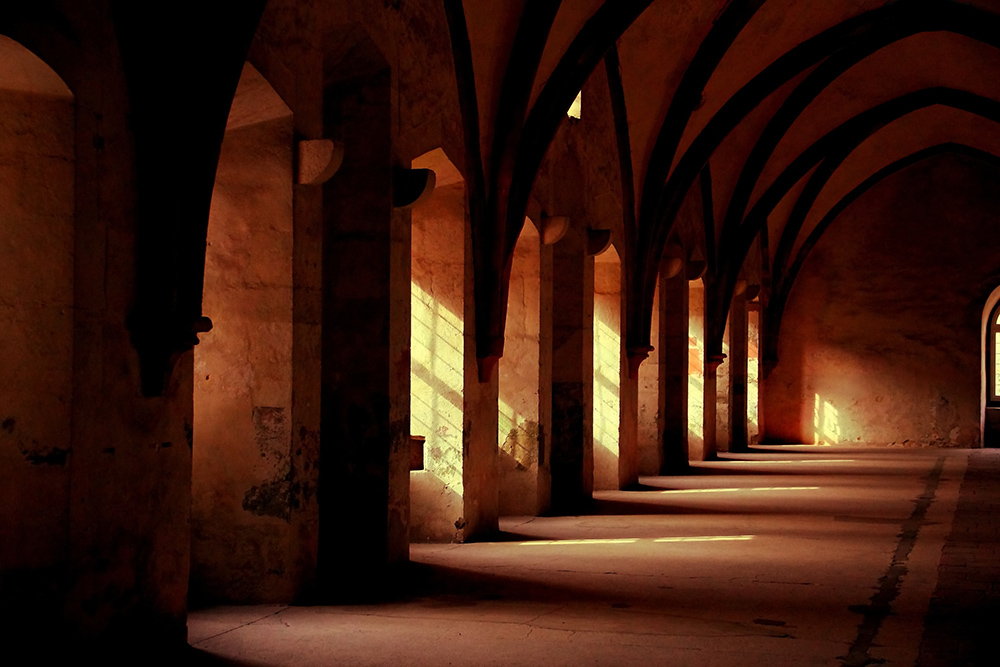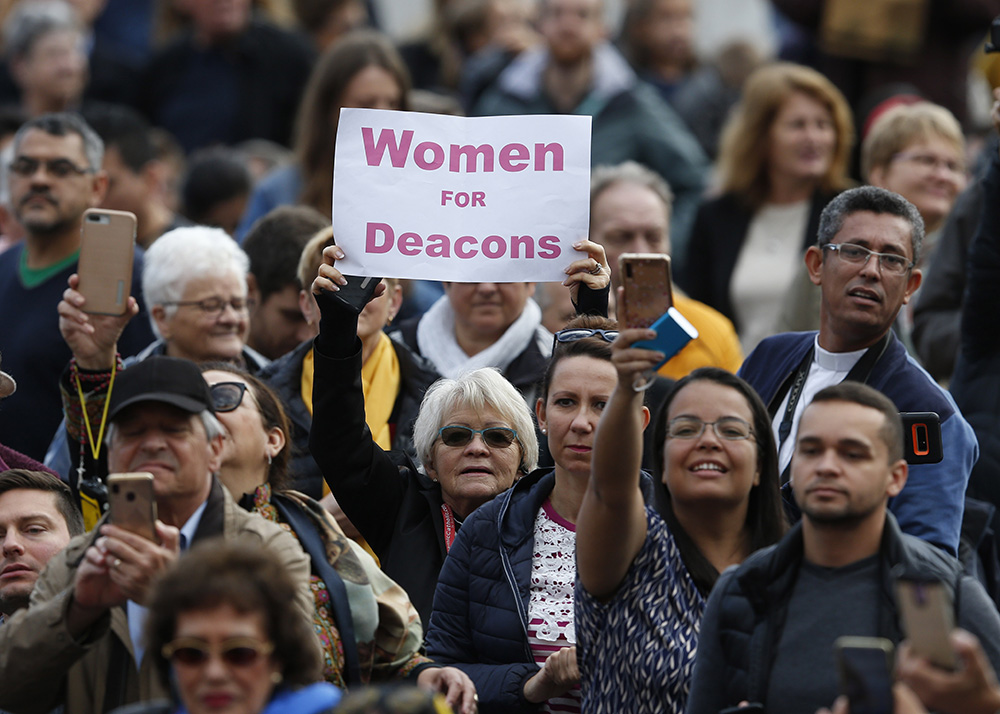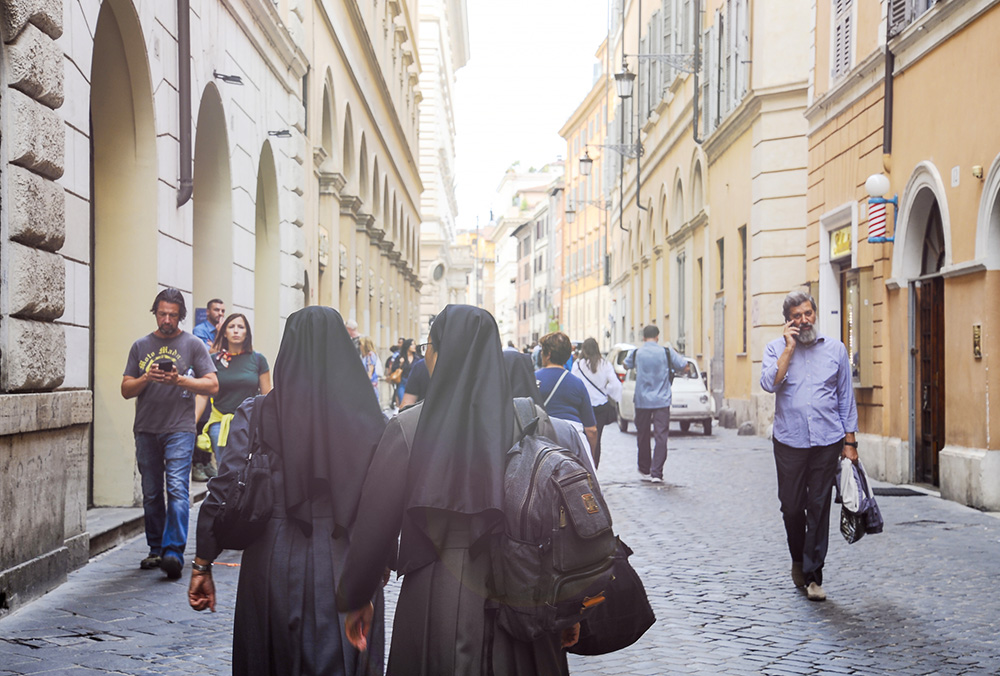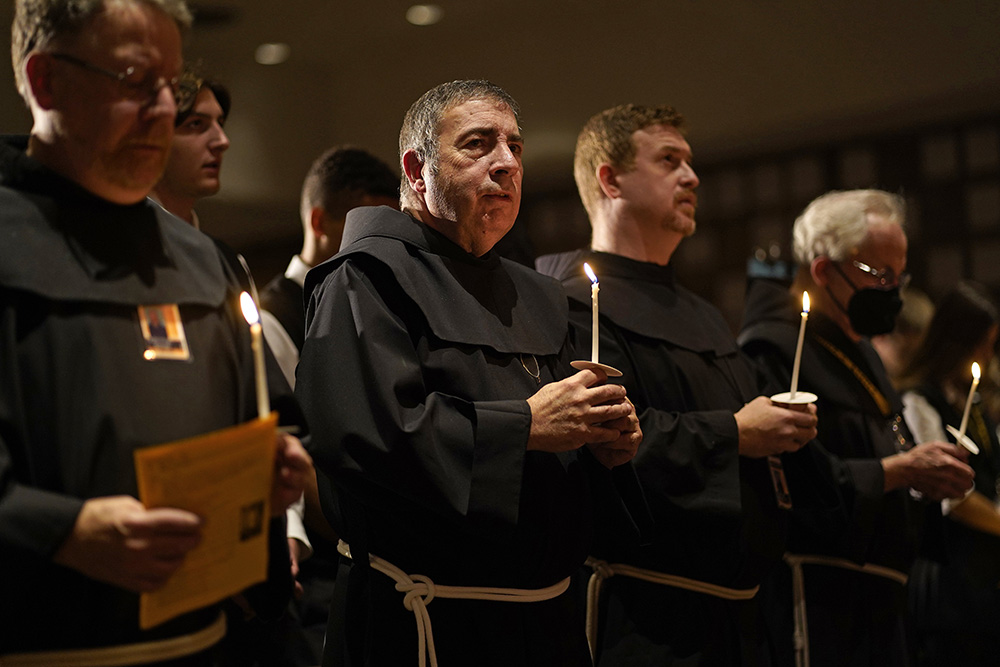
(Unsplash/Hartmut Tobies)
This will be the fifth, and last, of my columns in this short series on the Holy Spirit. Admittedly, there is still so much that can and ought to be said about the need for a more robust pneumatology and reflection on the role of the Spirit in the life of the church and world. It is my hope that these reflections invited readers to consider the third person of the Trinity in new ways, while also challenging each of us to deepen our relationship with the Spirit.
So far, we have looked at why it is important to pay more attention to the Holy Spirit, how one comes to know and name the Spirit, how the metaphor of jazz might help us recognize the Spirit's presence in our lives and how she functions in the world, and how the Spirit is both leading and driving the church into the synodal process.
Now I want to consider the Holy Spirit's role in the vocation to religious life and ministry. The notion of vocation (from the Latin vocare meaning "to call") is important in understanding how God invites and how the people of God respond to an invitation to live a particular kind of life in the church and world. Traditionally, the church has recognized a range of vocations or callings, such as to marriage, single life, and ordination or consecrated religious life.
The renowned biblical expert and scholar of spirituality Immaculate Heart of Mary Sr. Sandra Schneiders wrote in her 2001 book, Selling All: Commitment, Consecrated Celibacy, and Community in Catholic Religious Life: "The very word vocation suggests that the initiative for undertaking Religious Life comes from 'outside' oneself, from Another."
The Holy Spirit may be calling plenty of people to religious life and ordained ministry, but those in power are precluding those called the ability to respond to this divine invitation.
There are at least three dimensions of where this calling to religious life and the role of the Holy Spirit intersect: at the level of the individual, at the level of the community and at the level religious life as a way of being in the church.
Concerning the individual, the role of discernment of the Spirit's call is central. When we talk about vocations to religious life or ordained ministry, often a specter of scarcity haunts the discussion. It is commonplace to describe the current situation as a "vocations shortage" or "vocations crisis," which typically refers to the decreasing number of young women and men entering religious life or preparing for ordained ministry. Compared to the numerical peak of the mid-20th century, the last few decades have indeed witnessed a steady decline in the number of those entering religious formation or diocesan seminaries.
But I have often been skeptical of the overly simplistic claim that this is an inherently bad thing or that it is some kind of anomaly. True, compared to the mid-1950s, the number of people entering religious life and ordained ministry is dramatically smaller. However, the numbers have always fluctuated. What gets far less consideration is what role might the Holy Spirit play in this shifting context.
Advertisement
At the individual level, I believe that God has always and continues to call some people to consecrated religious life. However, those numbers have always been relatively small when compared with the vast number of baptized Christians.
That the contemporary perception is of a greater decline than at other points in history (which is debatable) may have less to do with whether or not the Holy Spirit is calling a certain number of people to this way of life and more to do with whether the rest of the Christian community actually recognizes and affirms the vocations of those who experience a call.
I am certainly not the first person to observe this dynamic. In addition to the phenomenon of individuals who have felt called to religious life or ordained ministry in the church only to be dismissed or barred from pursuing that vocation, there is also the universal church's recent consideration of other ways the Spirit may be calling individuals to ministry and forms of religious life that have been previously viewed as impossible.
One only has to look at the Synod of Bishops for the pan-Amazon region in 2019 to see how regional and global discussions about recognizing the Spirit's call of some married men to the ministerial priesthood and some women to diaconal ministry illustrate precisely this dynamic.
The Holy Spirit may be calling plenty of people to religious life and ordained ministry, but those in power are precluding those called the ability to respond to this divine invitation.

A woman holds a sign in support of women deacons as Pope Francis leads his general audience in St. Peter's Square at the Vatican Nov. 6, 2019. (CNS/Paul Haring)
Such dynamics suggest to me a fearfulness of the Spirit's dynamism and creative call. Are fewer people entering this form of life and ministry in the church because the Spirit is calling fewer people or because we have not allowed ourselves as church to recognize and affirm the Spirit's calling of those who do not fit the traditional mold?
Only greater attunement to the Spirit's ongoing, dynamic and creative work in the church in the world can aid us in answering that question.
At the communal level, religious orders and congregations have had to confront the demographic and numerical shifts in new candidates entering religious communities and ministry. Some have opted to no longer accept candidates for the community. Others have opted to restructure how they organize themselves, including my own religious order, which moved from six individual American provinces of Franciscans to one nationwide province.
While such structural and sustainability strategies are important and necessary, something else ought to be prioritized, too. I wonder how well religious communities are considering the ways the Spirit is calling the community collectively.

Nuns are seen walking down a street in Rome in an undated photo. (Dreamstime/Davide Zanin)
Some congregations have discerned that they were called into existence for a particular apostolate or service, but that such missions are no longer needed, and the fullness of that community's life is coming to an end.
Others are discerning whether and how the Spirit may be inviting them to respond to the "signs of the times" in the "light of the Gospel" (Gaudium et Spes) in new and as-of-yet unseen ways. The discernment of the Holy Spirit's call is as much a communal process as it is an individual exercise.
Finally, one consideration that I don't believe receives enough attention about the Holy Spirit's ongoing call and the current state of religious life in the church is whether the Spirit may be calling us to embrace a larger paradigm shift.
Every few centuries, the Spirit has inaugurated a new kind of formal religious life. In the ancient church, this included the calling of women and men into the desert for eremitical and communal forms of religious life as nuns and monks. In the sixth century, St. Benedict of Nursia founded a monastic form of religious life that continues to this day.
Half a millennium later, in the 13th century, the great mendicant orders — the Franciscans, Dominicans, Carmelites, Augustinians, Servites — were born into existence, which radically shifted the perception of the domain and purpose of consecrated life from the cloister to the world. And in the post-Reformation era, the Spirit inspired new forms of apostolic and missionary life, as we see in the dozens of women's and men's congregations.

Members of the Franciscan Brothers of Brooklyn, New York, hold candles during a Mass marking the feast of St. Francis of Assisi at Franciscan-run St. Anthony's High School in South Huntington, New York, Oct. 4, 2022. The friars renewed their vows to consecrated ministry during the liturgy. (CNS/Gregory A. Shemitz)
Perhaps the Holy Spirit is again at work in the church and world, nudging, inspiring, calling us to again reconceive what professed religious life might look like.
I don't have any clear proposals for what form that might take, except to say that the question is not often or seriously enough asked, and that honest discernment requires more than new vocation recruitment strategies or sunsetting plans for declining numbers of consecrated religious. I do believe that the current and future synodal process of discernment is an opportune context within which to continue asking these kinds of questions about the state of religious life and what forms it might take moving forward.
I wonder what our increasing digital context and instant communication might mean for new forms of religious life. I also think about the deeply spiritual but not especially institutionalized sense of religion among members of Generation Z. Perhaps our younger siblings in faith are being called by the Spirit to new forms of community and religious life, but in contexts and expressions as new as the desert monastic or mendicant movements of their respective times were.
Are we open as a faith community to considering new and renewed forms of religious life? Or do we wish merely to repeat what we have known before, thereby potentially circumscribing the work of the Spirit?
I will continue to pray to, reflect on and study the Holy Spirit, which means that although this may be the last column on the topic in this series for now, it won't be the last time I write about the Spirit in this publication. Until then, let us continue to pray together: Veni Sancte Spiritus!







